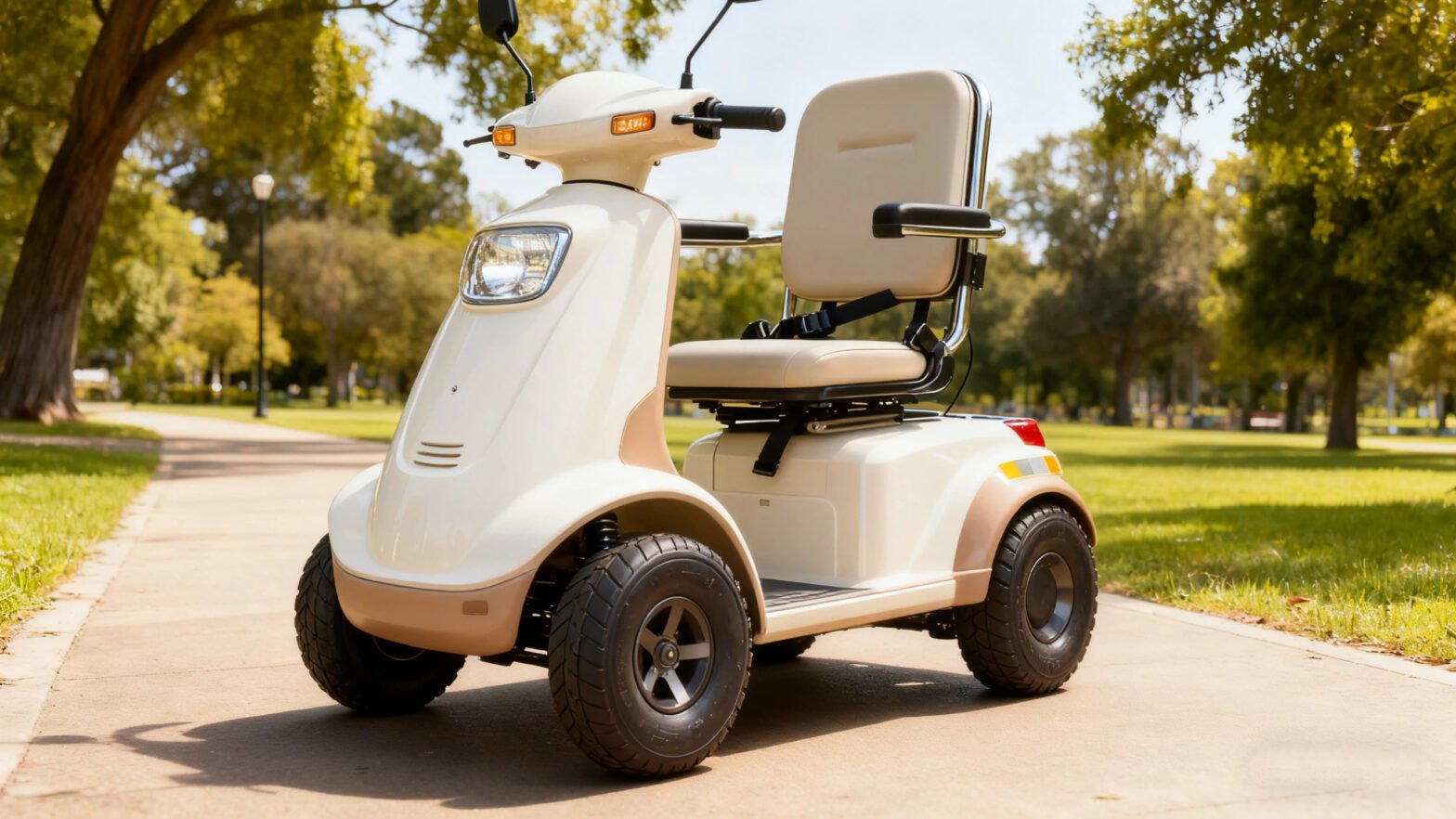
For anyone relying on a mobility scooter to stay independent, reliability isn’t just a nice-to-have—it’s a necessity. A flimsy battery, clunky mechanics, or a frame that wears down quickly can turn a tool of freedom into a source of frustration. But with so many models on the market, how do you spot the one that will stand the test of time? The answer lies in focusing on durable build quality, consistent performance, and trusted brand expertise—and matching those to your unique lifestyle. Let’s break down what makes a mobility scooter reliable, and which models rise above the rest.
First, let’s define “reliability” when it comes to mobility scooters. It means a scooter that starts every time, holds a charge as promised, handles daily use without breaking down, and keeps you safe in different conditions. Key indicators include a sturdy frame (think aluminum or high-grade steel), a long-lasting lithium-ion battery (not cheap lead-acid alternatives), and simple, low-maintenance mechanics. Brands that back their products with strong warranties and responsive customer service also add an extra layer of reliability—you know help is there if something goes wrong.
No single scooter is “the best” for everyone, but certain models excel in reliability for specific needs:
Folding scooters are great for trips, but many feel cheap and fragile. Not the WHILL R 4-Wheel—its aircraft-grade aluminum frame resists dents and rust, even after being loaded and unloaded from car boots dozens of times. The folding mechanism is smooth and consistent (no stuck levers!), and its lithium battery holds a charge for up to 15 miles—enough for a day of sightseeing. Another travel-friendly pick is the Minimo Autofold: its foot-pedal folding system rarely malfunctions, and the battery is airline-approved (no last-minute airport headaches). Users often note that even after years of travel, these models keep performing like new.
If you’re using your scooter for trips to the grocery store, café, or local park, a Class 2 model needs to handle pavement cracks, tight corners, and frequent stops. The Zest Plus stands out here: its pneumatic tires (air-filled, not solid rubber) absorb bumps without popping, and the ergonomic handlebars with easy-to-use buttons don’t wear out with repeated use. The padded seat stays comfortable even on long rides, and the motor delivers a steady 4 mph—no sudden jerks or slowdowns. What makes it reliable? Owners report minimal issues after 2–3 years of daily use, and replacement parts (if needed) are easy to find.
For those living in semi-rural areas or who need to cross roads, Class 3 scooters must be both safe and tough. The TGA Breeze S3 is a standout: its all-round suspension handles gravel paths and potholes smoothly, and its large alloy wheels never feel wobbly. The battery lasts up to 25 miles—plenty for a trip to the supermarket and a detour to visit a friend. The lights and indicators (required for road use) are bright and long-lasting, even in rain or fog. Another reliable Class 3 option is the Vita X: its heavy-duty frame and chunky off-road tires tackle mud and steep hills without straining the motor. It’s been a top choice for rural users for years, thanks to its “set-it-and-forget-it” reliability.
A scooter is only as good as the company behind it. TGA Mobility (with over 30 years of experience) leads the pack here—they design and build their scooters in-house, not just import cheap parts. This means stricter quality control: every Breeze S3 or Vita X is tested for durability before it leaves the factory. They also offer a 2-year warranty on batteries and frames, and their customer service team responds quickly to questions. Other trusted brands include WHILL (known for innovative, long-lasting designs) and Pride Mobility (which focuses on simple, reliable mechanics for everyday use).
Check the battery type: Lithium-ion batteries last 2–3 times longer than lead-acid ones and hold charges better.
Read user reviews: Look for comments like “still works great after 2 years” or “battery hasn’t faded.” Avoid models with repeated complaints about broken parts.
Test it in person: If possible, visit a showroom to feel the frame (is it solid, not flimsy?), test the brakes (do they stop smoothly?), and check how easy it is to adjust the seat or handlebars.
Ask about warranties: A brand that offers a 1–2 year warranty on the entire scooter (not just parts) is confident in its reliability.
The most reliable mobility scooter is the one that fits your life and is built to last. For travelers, it’s the WHILL R or Minimo Autofold; for city dwellers, the Zest Plus; for rural or road use, the TGA Breeze S3 or Vita X. But no matter which you choose, prioritize durability, a trusted brand, and a design that matches how you’ll use it. With the right scooter, you won’t just be moving—you’ll be moving with confidence, knowing it will keep up with you for years to come.
Copyright@ 2026 Nanjing Kangni Smart Technology Co., Ltd. All Right Reserved.